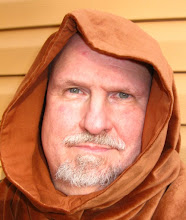The unnamed dead are everywhere, so many that they overwhelm police departments' ability to identify them all. Volunteers in the Doe Network are trying to take up the slack.
LIVINGSTON, Tenn. (AP) -- Four days a week Todd Matthews earns $11.50 an hour working for an automotive parts supplier. He punches in at 4:15 a.m., punches out nearly 11 hours later, then drives half a mile to his little beige house on a hill where, in the distance, he can glimpse the Appalachian mountains.
He spends the next seven to eight hours at his desk, beneath shelves lined with miniature plastic skulls, immersed in a very different world.
Their faces seem to float from his computer - morgue photographs, artist sketches, forensic reconstructions - thousands of dead eyes staring from endless Web sites as though crying out for recognition. John and Jane and Baby "Does" whose nameless bodies have never been identified.
His wife, Lori, complains that Matthews spends more time with the dead than he does with the living, including his two sons, Dillan, 16, and Devin, 6.
You need a hobby, she says, or a goal.
I have a goal, he replies, though he describes it as a "calling".
He wants to give "Does" back their names.
It's a long article, but well worth reading. It's sad reading, because when the Doe Network has a success, it means that a family has to give up all hope of finding their lost relative/friend forever. It's still a worthy endeavor, though.
Saturday, March 29, 2008
Subscribe to:
Post Comments (Atom)








No comments:
Post a Comment